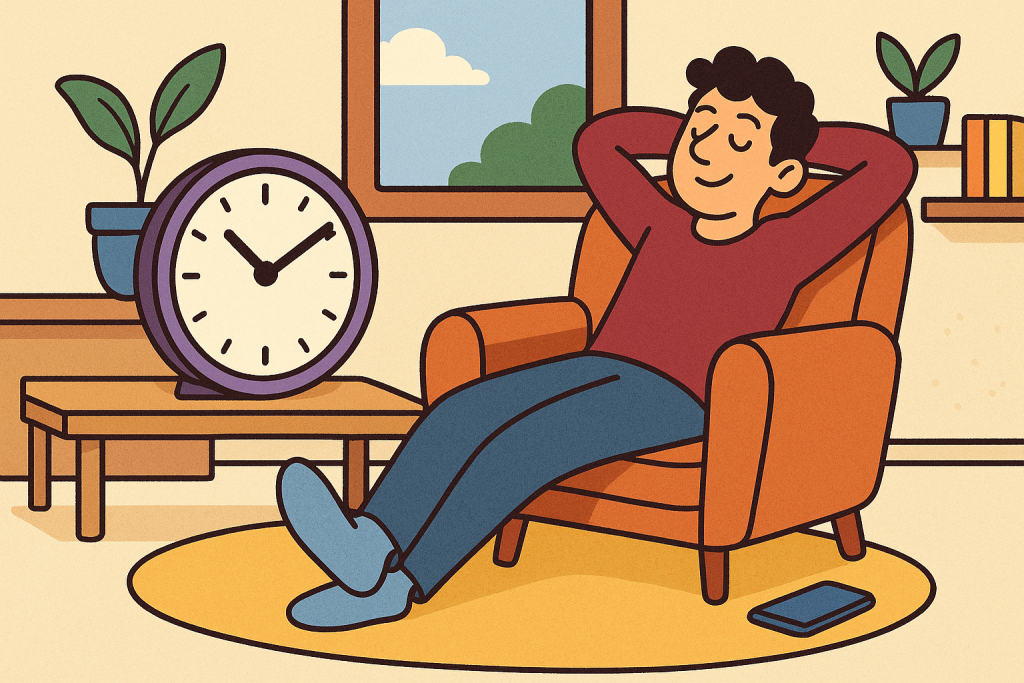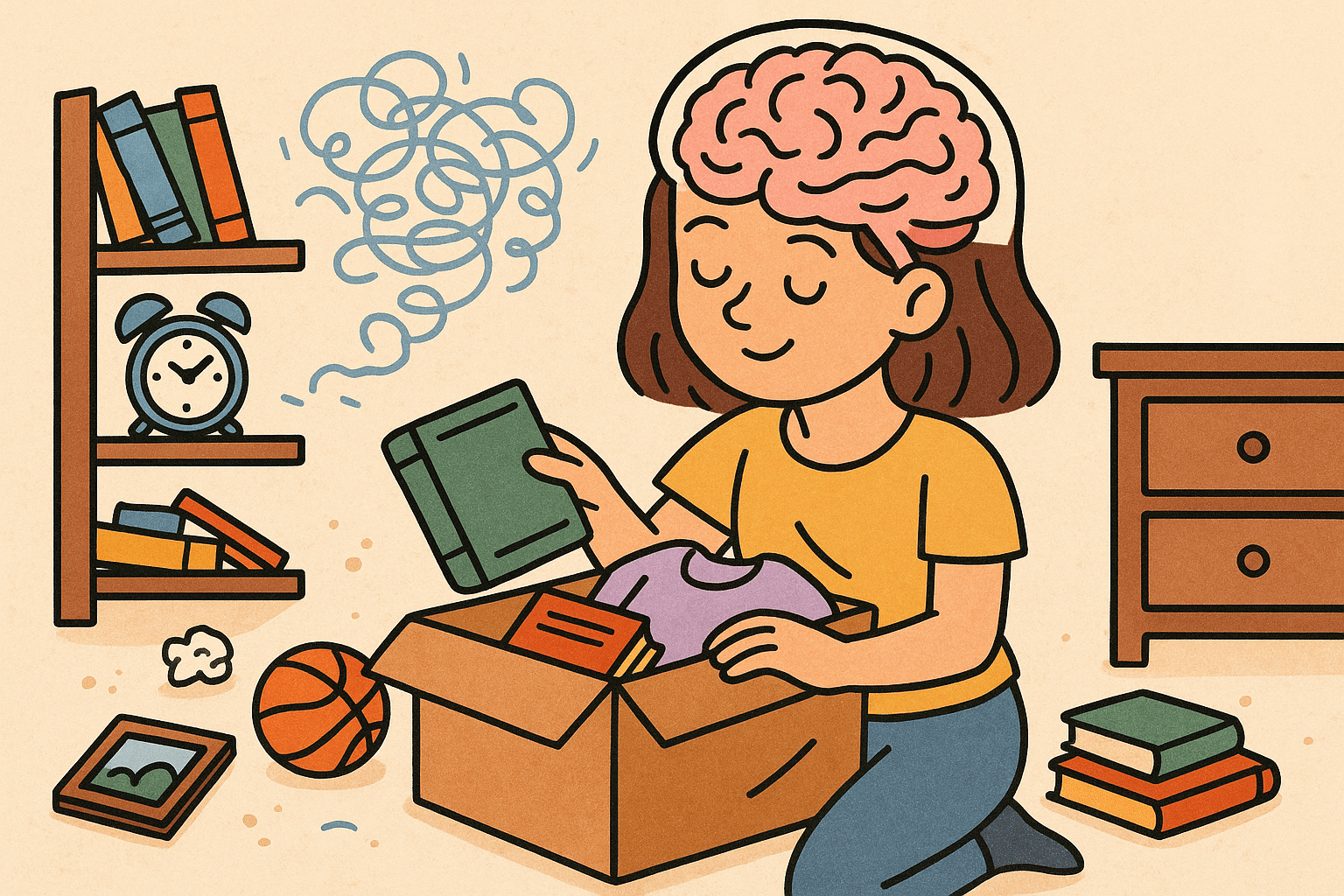In an era defined by hustle culture and constant connectivity, it may seem radical – even selfish – to schedule time to do absolutely nothing. Yet mounting evidence shows this isn’t laziness—it’s a critical strategy for mental health, creativity, and long-term productivity.

With an always‑on lifestyle, setting aside moments where you schedule time to do absolutely nothing can reset your mind, spark ideas, and improve well‑being. Learn why this trend is gaining traction—and how to do it right.
1. The Rise of “Niksen” and Idle-Time Culture
The Dutch concept of niksen—doing nothing with no goal—has seen a resurgence as people combat burnout and chronic stress. Unlike mindfulness, niksen invites mental rest and daydreaming, which creativity experts agree helps incubate ideas and resolve problems subconsciously.
Today’s trend: people intentionally block off calendars—no screens, no tasks, just pure idleness. It’s a growing counterpoint to over-scheduled, hyper-productive norms.
2. The Neuroscience: When Doing Nothing Does Something
2.1 Unlocking the Brain’s Default Mode Network
Neuroscientific studies show that when we “do nothing,” the brain’s default mode network activates—supporting memory consolidation, self-reflection, and creative problem-solving.
2.2 Mental Breaks Boost Creativity
Idle time allows your unconscious mind to make new connections. Fast Company notes that downtime fosters “thunderbolt insights” and helps maintain creativity over time.
2.3 Physiology Benefits
Periods of doing nothing help lower stress hormones, blood pressure, and heart rate—key markers of better health and longevity.
3. Mental Well‑Being: Less Burnout, More Balance
3.1 Reducing Anxiety and Stress
A Psychology Today piece confirms that doing nothing makes you feel more balanced and energized, allowing you to show up better in your relationships.
3.2 The Dark Side of Idle Without Intent
Moodning—where idle time slides into rumination—can increase negative thoughts and reduce well-being . That’s why we schedule it with purpose: to give space, not spiral.
4. Productivity Paradox: More by Doing Less
Research consistently finds that scheduled idleness raises later focus and efficiency. “Busy” doesn’t always equal better—it can cloud judgment and weaken decision-making. So taking purposeful downtime actually helps you get more done.
4.1 Avoid Decision Fatigue
Psychologists link constant choice-making to fatigue. Simple strategies (like repeating outfits) help, but scheduled breaks—by doing nothing—let your brain recover and stay sharp.
5. How to Schedule Time to Do Absolutely Nothing
- Block It In
- Start with 10–20 minutes daily—write it into your calendar like any other appointment.
- Disconnect
- Leave phones and notifications out of reach. No to-do lists allowed.
- Create the Space
- Find a quiet spot: a chair by a window, a park bench, etc.
- Resist “Using” the Time
- It’s not meditation or planning—just presence and openness.
- Reflect After
- Ask yourself: How did I feel? Did ideas or moods shift?
Consistency matters—daily slots build up the positive impact over time.
6. Common Pitfalls and How to Avoid Them
- Guilt from Doing Nothing
- Society prizes busyness. Remind yourself downtime is intentional self-care.
- Drifting into Negativity
- If rumination pops up, refocus gently on sensory awareness—sounds, tactile sensations, breathing. Or try a guided intro before slipping into unstructured time.
- Inconsistency
- Schedule the same time each day—first thing in the morning, lunch break, or before bed.
7. Real‑World Examples: Lessons from the Busy and Brilliant
- Tiresome tech CEO schedules “do nothing” pauses between meetings to recover mental clarity.
- Creatives dedicate unstructured Sunday morning periods to daydreaming, capturing “lightbulb” moments.
- Workers using this method report lower stress, fewer errors, and more satisfying work days .
8. Measuring Success
- Improved mood and less anxiety.
- Freer thinking and idea flow during work sessions.
- Better physical markers: calmer heart rate, slower breathing.
- Decision quality remains high later in the day.
Use simple journaling or mood tracking apps to measure improvements.
9. Summary: Scheduling Time to Do Absolutely Nothing Works
Bringing it all together:
- Psychological science confirms idle time revitalizes the mind
- Physiological data shows stress reduction
- Real-life routines prove it enhances focus and creativity
- Key: Plan it, protect it, reflect on it
References
Headspace (2021) The benefits of doing nothing. Available at: www.headspace.com (Accessed: 17 June 2025).
Pang A. (2018) Rest: Why You Get More Done When You Work Less. New York: Basic Books.
Psychology Today (2022) The mental health benefits of boredom. Available at: www.psychologytoday.com (Accessed: 17 June 2025).






